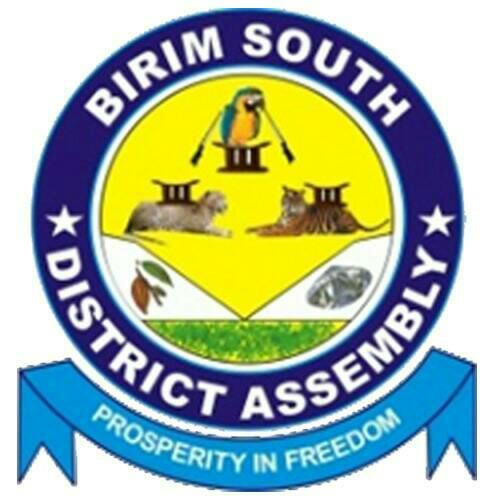Water Security, Sanitation and Waste Management
Water Security
The availability of potable water is very vital for the socioeconomic development of every society. There are about 9 main sources of water for households within the District. Out of this six (6) are potable sources whiles the remaining three (3) are considered not potable sources. The potable sources include: In house tap, in yard tap, in yard well (covered), public well (covered), borehole and public taps whereas the non-potable sources include: in yard well (not covered), surface water (river/streams), and public well (not covered). Major sources of water supply in district include pipe borne water, boreholes, wells, streams and rivers. Pipe borne water is concentrated in urban areas such as Akim Swedru the District capital and Akim Awisa. Boreholes, wells, and streams or rivers are dominant in the rural areas.
Boreholes and wells are also available in the urban areas as supplement due to inadequate and unreliable pipe borne water supply from the Ghana Water Company. This is attributed to poor capacities of equipment and the fact that some of the facilities are either very old or broken down. The situation is even aggravated by the high rate of expansion in the district capital and other urban centres. There is therefore the need to extend pipe borne water to growing communities with population above the threshold of borehole facilities. A typical example is Akim Aduasa which is under Ghana Water Company but hardly enjoys the facility.
In recent times, donor organizations like the Christian Broadcasting Network, Japan Embassy and the Chinese Government have contributed to the improvement of water supply through the provision of mechanized/ manual boreholes and Hand Dug wells with pumps.
Table 1.8 shows water facility in the district by Area Council. The district has a total of 85water facilities. In terms of facility type, manual boreholes (52) have the highest concentration, whereas Hand Dug-Out (6) and Wells with pumps (1) have the least concentration the potable water coverage in district is 62.8 percent.
Poor management (operation and maintenance) of water facilities especially in the rural areas is one of the problems associated with water supply. This has resulted from the low capacity of the Water and Sanitation Teams to run the facilities. In most communities, these teams are non-existent or do not have the full composition.
Type of Water Facilities in the District
|
TYPE OF FACILITY |
SWEDRU |
|
HDW |
6 |
|
Manual Boreholes |
52 |
|
Mechanized Boreholes |
25 |
|
Wells with pumps |
1 |
|
Mini Water System |
1 |
|
Total |
85 |
Water facilities in the District, DPCU 2021
Sanitation and Waste Management
There are 9 public toilets in the district. These facilities are spread around Swedru and Awisa. Communities like Apoli and Akortekrom do not have any public toilet. The collection, transportation and disposal of solid and liquid waste are the sole responsibility of the District Assembly which operates through the Zoomlion Company limited. Solid waste collection is done in three ways: door to door, dumping at refuse site and communal container system. Door to door services is usually provided to middle class in communities such as Swedru and Awisa. District Assembly uses 11 refuse containers for the communal collection. The District Environmental Health unit in collaboration with Zoomlion regularly administered refuse collection for onward disposal from markets, lorry parks and other public centres.
The district has a landfill site at Aduasa. In an attempt to improve the general waste management, the district acquired six (6) acres of land at Aduasa which has been developed by the Zoomlion Ghana limited. Three (3) acres are being used for solid waste management and the rest for liquid waste management.
Inventory of Public Toilets in Birim South District
|
No |
Community |
Type |
Number of facilities |
|
1. |
Swedrusekunde |
20 Seater WC |
1 |
|
2. |
SwedruZongo |
20 Seater Vault Chamber toilet |
1 |
|
3. |
Suame |
10 Seater Septic Tank Latrine |
1 |
|
4. |
Salem |
20 Seater Septic Tank Latrine |
1 |
|
5. |
Salem |
12 Seater Septic Aqua privy |
1 |
|
6. |
Awisa Methodist Area |
10 Seater Septic Tank Latrine (Abandoned ) |
1 |
|
7. |
Awisa Chief Palace |
12 Seater Septic Tank Latrine |
1 |
|
8. |
Awisa Refuse Dump |
20 Seater Septic Tank Latrine |
1 |
|
9. |
Awisa Market |
2 Seater WC (Not Functioning) |
1 |
Source: District Environmental Health Unit 2021

